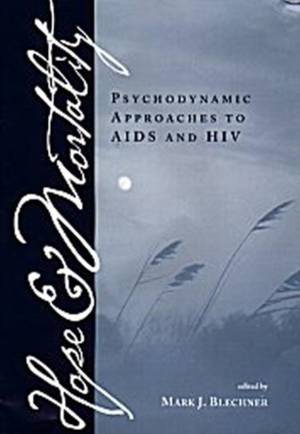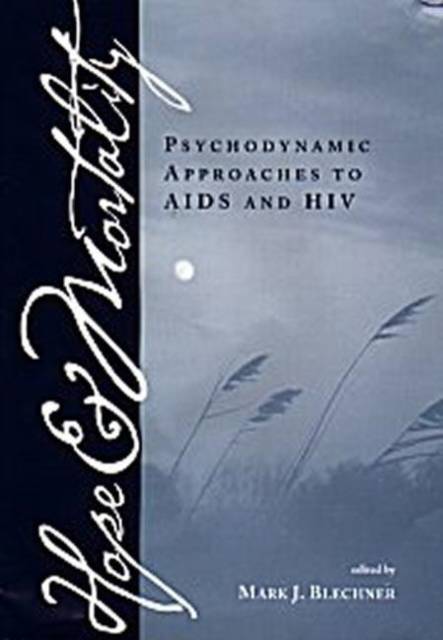
- Afhalen na 1 uur in een winkel met voorraad
- Gratis thuislevering in België vanaf € 30
- Ruim aanbod met 7 miljoen producten
- Afhalen na 1 uur in een winkel met voorraad
- Gratis thuislevering in België vanaf € 30
- Ruim aanbod met 7 miljoen producten
Zoeken
€ 105,45
+ 210 punten
Uitvoering
Omschrijving
AIDS has humbled us. Thus observes editor Mark Blechner in introducing readers to this powerful collection of essays on psychodynamic approaches to AIDS. It is the disease, Blechner tells us, that "has forced us to rethink our relation to sickness and health, mortality, sexuality, drug use, and what we consider valuable in life." In the chapters that follow, experienced clinicians shatter myths about the inapplicability of psychoanalysis to work with AIDS patients.
In addition to setting forth general principles involved in working with patients with serious illness, Hope and Mortality explores the wide range of therapeutic issues that have arisen in the wake of AIDS. Among the topics of individual chapters: working with children whose parents have AIDS; working with AIDS patients in an inner-city hospital; disability, dementia, and other realities of late-stage AIDS; treating someone who becomes HIV-positive while in therapy; leading a support group for gay men with AIDS; confronting fears of HIV in the "worried well"; and coming out of the closet as a heterosexual while running a bereavement group for gay men. Most poignant of all are chapters in which therapists examine how they have been transformed by treating people with AIDS. Here contributors candidly discuss how their attitudes toward death have shaped, and in turn been shaped by, their clinical work. They tell of recovering near-death memories, of questioning their reliance on traditional medicine, and of feeling the numbing effects of multiple loss with their patients. The AIDS epidemic has become so widespread that every clinician must learn about the disease and the psychological issues it raises. Hope and Mortality provides an illuminating exploration of these issues and raises profound questions about the overall aims of psychotherapy. It will instruct and challenge all mental health professionals, and provide hope and enlightenment to anyone dealing with a life-threatening condition.Specificaties
Betrokkenen
- Auteur(s):
- Uitgeverij:
Inhoud
- Aantal bladzijden:
- 284
- Taal:
- Engels
Eigenschappen
- Productcode (EAN):
- 9780881632231
- Verschijningsdatum:
- 1/11/1997
- Uitvoering:
- Hardcover
- Formaat:
- Genaaid
- Afmetingen:
- 161 mm x 236 mm
- Gewicht:
- 585 g

Alleen bij Standaard Boekhandel
+ 210 punten op je klantenkaart van Standaard Boekhandel
Beoordelingen
We publiceren alleen reviews die voldoen aan de voorwaarden voor reviews. Bekijk onze voorwaarden voor reviews.











